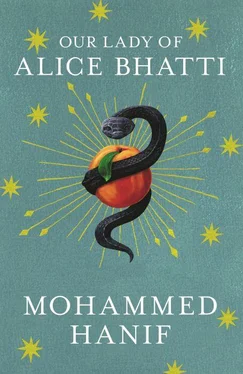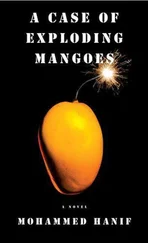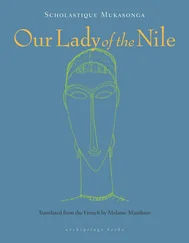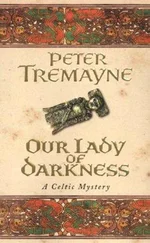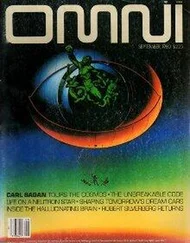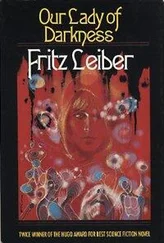But these decisions are not his to make. He is not going anywhere till he finds not-Abu Zar, and how can he find not-Abu Zar if he can’t leave the house? How can he even plan a proper search if his woman walks around all day without a shalwar?
He was going to go about it in a systematic way; he had got a sketch drawn and then had one thousand copies printed. Now one thousand images of not-Abu Zar sit in the cupboard, away from Alice’s prying eyes. Official documents, she was told. Now he can’t even go out and put these posters on the walls. Looking down into the deluge from the window, it occurs to him that maybe he should make paper boats out of them and send them out into the world.
Teddy tries to curb the onslaught of images of heads being crushed under bodybuilding plates. Malangi has told him that most murderers are stay-at-home types. He should get out as soon as the water recedes. Malangi has also told him that when trapped at home, look at your woman from a different angle, pretend she is someone else’s wife (“Don’t pretend that she is Mrs Malangi, because, trust me, you don’t want to”). Forget what she is saying; try and get to know her body.
Teddy concentrates on Alice Bhatti’s shapely ankle and reminds himself that it is his wife’s ankle. This leg is his wife’s leg. He kisses her ankle and then cups her kneecap as if marking her body bit by bit, convincing himself that it belongs to him. “You smell nice, Mrs Butt,” he says, nuzzling the back of her knee with his nose.
“I smell like something the cat dragged in,” she responds, withdrawing her leg, then she puts her heel on the nape of his neck and gently massages it.
Teddy Butt can see all the way up between her legs where a few wiry hairs jut out of her white panties. He feels a mixture of disgust and desire, like a devout person who is hungry but can’t decide whether the fare on offer is halal or not. The ceiling fan suddenly moves faster in its doomed assault on humidity.
“You can use my wax if you want,” Teddy Butt says kindly, as if offering her a lick from his ice-cream cone.
Alice grabs his hand, pulls it to her panties and presses it against herself. “This is a woman’s body, not a baby girl’s. Did you want a baby girl as your wife?”
Teddy’s face reddens and he gets a sudden urge to punch her between her legs. He doesn’t fancy baby girls, he has never thought of baby girls; he thinks baby girls are babies. He controls his anger, withdraws his hand, then moves it on Alice’s smooth calf, gently, like a bar of soap gliding on her sweaty leg.
“In our Book it says that women shouldn’t keep those hairs longer than a grain of rice.” He can’t remember where he has read or heard this, at a Friday sermon maybe, or in the Friday supplement of a newspaper perhaps; he is not sure, but he is certain that he is not making it up. It sounds authentic and reasonable. It’s specific but not stingy, something that most women can comply with, a true hallmark of all universal religions. “It’s about hygiene, especially in a climate like ours.”
“Basmati?” Alice says. Suddenly it seems they are a couple trying to decide what to cook for dinner.
“You are making fun?” Teddy props himself on his elbow and stares into her eyes, trying to decide if she really is making fun of him. “Are you making fun of my religion? You know that I am not very religious, but I don’t think it’s a good idea to make fun of anyone’s beliefs.”
“No, I am just asking a practical question. No offence, but you don’t really go shopping, so you have no idea. You go to Sunday bazaar and you ask for rice and they’ll ask you which one. That’s all I am asking. There are about twelve varieties. They range from this, to this…” She demonstrates with her forefinger and thumb, the whole range, from tiny broken grain to genetically enhanced, almost vulgar-looking Kala Shah Kakoo basmati. “One needs to be specific. Especially if it’s God’s word. It can be dangerous if it’s vague. Choose the wrong variety of rice and you burn in hell for eternity.”
Teddy is not sure if she is mocking him. Women make you weak and impotent because they make perfectly normal men feel they are fools, Inspector Malangi has told him. You go to work and people think you have an analytical mind, you are an expert of some sort on something. You walk down your street and people ask for your advice because they think you are a man of the world, and then you go home and you start discussing weather with your wife or the damp in the walls and she will prove in an instant that you are the world’s biggest idiot. That’s exactly how he feels now. You can’t even have a conversation about body hair without being accused of paedophilia and bigotry.
He makes a mental note to ask a G Squad member who is an expert on matters of religion.
“Will you help me move this bed? We might get some air if we put it against the window.”
Teddy gets up quietly. Together they move the bed, and now they can see a broken-mirror-tiled minaret while lying in bed but there is still no wind.
“Will you try and get a regular job?” Alice runs her fingers up his back, hoping to change the topic.
“What is wrong with my job?”
“Let’s see. Hours are strange. You don’t really get paid regularly.”
“I do get paid.”
Teddy thinks that on some special calendar for wives, today must be humiliate-your-husband day.
“You also do night shifts.”
“But that’s part of my work.”
“And what I do is not part of my work?”
Alice starts to massage his shoulders, which stiffen up under her prodding fingers.
“Your work is dangerous. I can never get sand out of your clothes.”
“We live in dangerous times. We live in a dangerous place. It’s better to know the danger, to work with it, to tame it.”
Teddy wonders if he has begun to talk like Inspector Malangi. Soon he’ll be worrying about his wife’s shopping habits and his kids’ homework.
Then he remembers his own homework: a pile of not-Abu Zar’s posters waiting for him in the cupboard.
Alice Bhatti sends for Sister Hina Alvi when she realises that the baby is stuck flat, a situation that she has never dealt with before. The girl has been in labour for fourteen hours. When Alice Bhatti took over the previous night, the eighteen-year-old mother was already fully dilated. Since then it has been a series of false alarms. Alice Bhatti is holding her hand, ignoring her screams, which alternate between yelling and chanting slogans of Ya Ali as if she was a new convert at a Shia procession. Alice Bhatti wishes Dr Pereira was here rather than supervising the breaking of bread and sipping of lemon bloody squash at the Holy Trinity church. There is no one to help except Noor, who follows her instructions with his eyes to the floor and refuses to look up. This screaming girl almost his own age thrashing around on the bed reminds him of certain nights in the Borstal. There was a teenage girl from Balochistan who started to scream when her period pains started and refused to shut up even when they locked her in a solitary cell. On those nights Noor would cover his ears and tremble through the night. Noor who doesn’t flinch when he sees shattered limbs on the A&E floor, Noor who can do twelve stitches in three minutes, all the while reassuring his patient that anaesthesia is on the way, Noor who is generally immune to any kind of gore can’t stand the battle that this woman on the bed is waging against her own body. Even now, between handing Sister Alice scalpels and spirits, he turns towards the wall and cups his ears with his hands, like a child turning away from a particularly horrific scene in a movie.
Читать дальше
